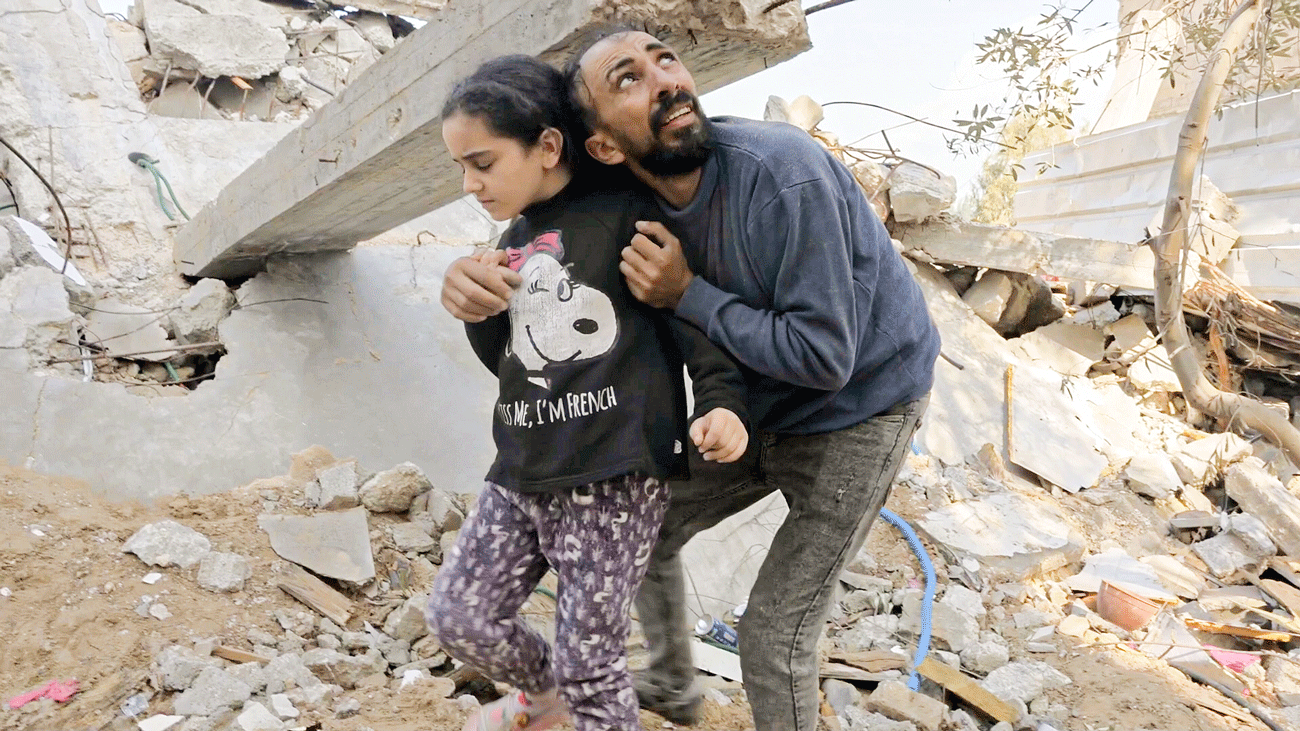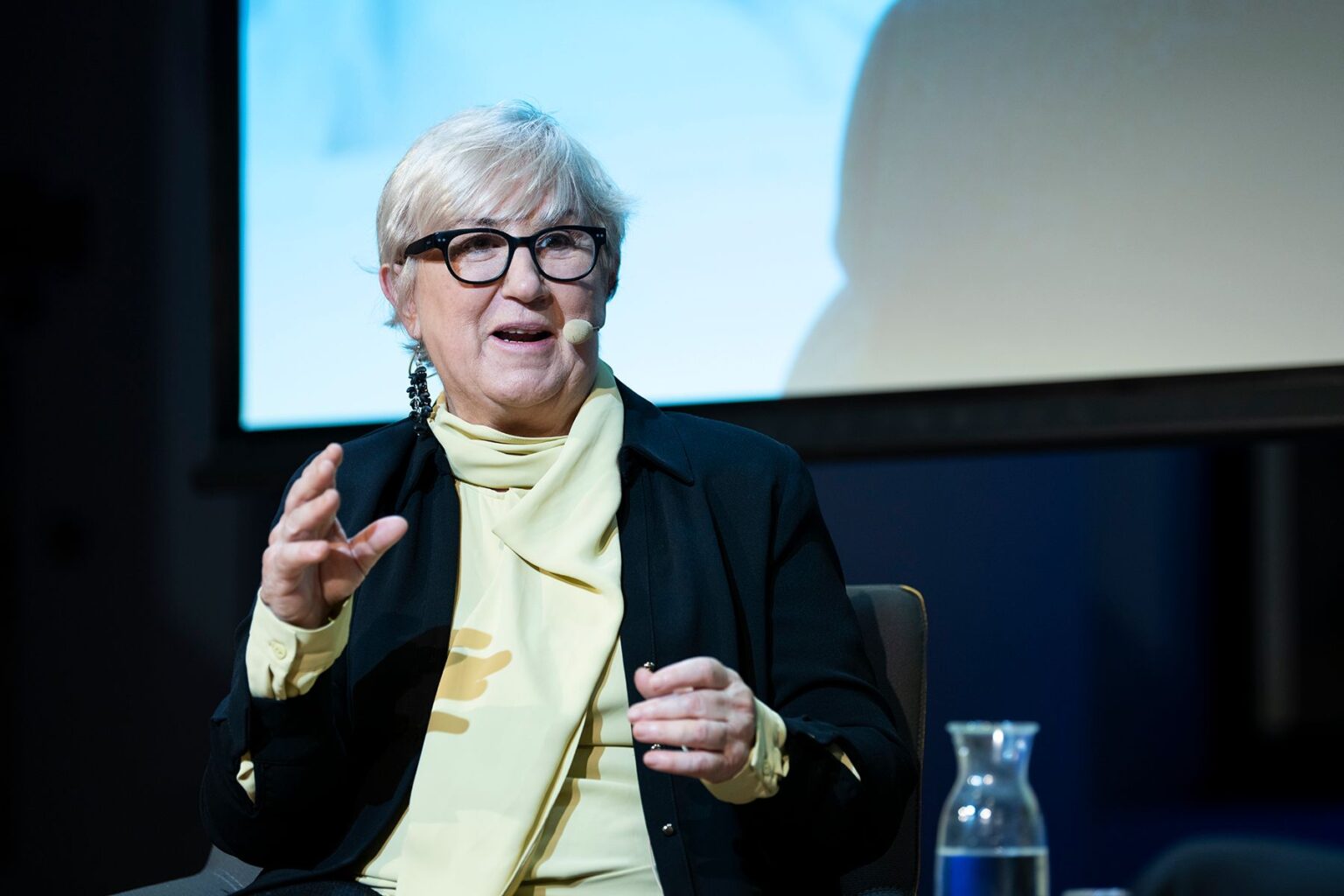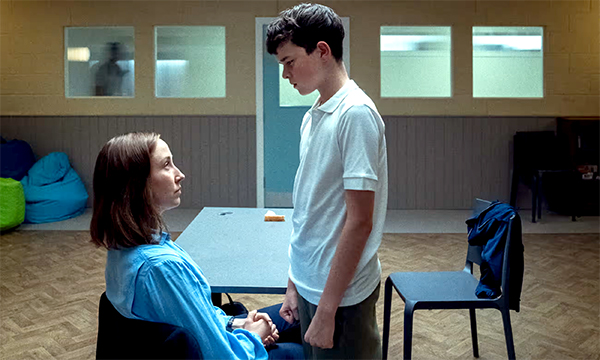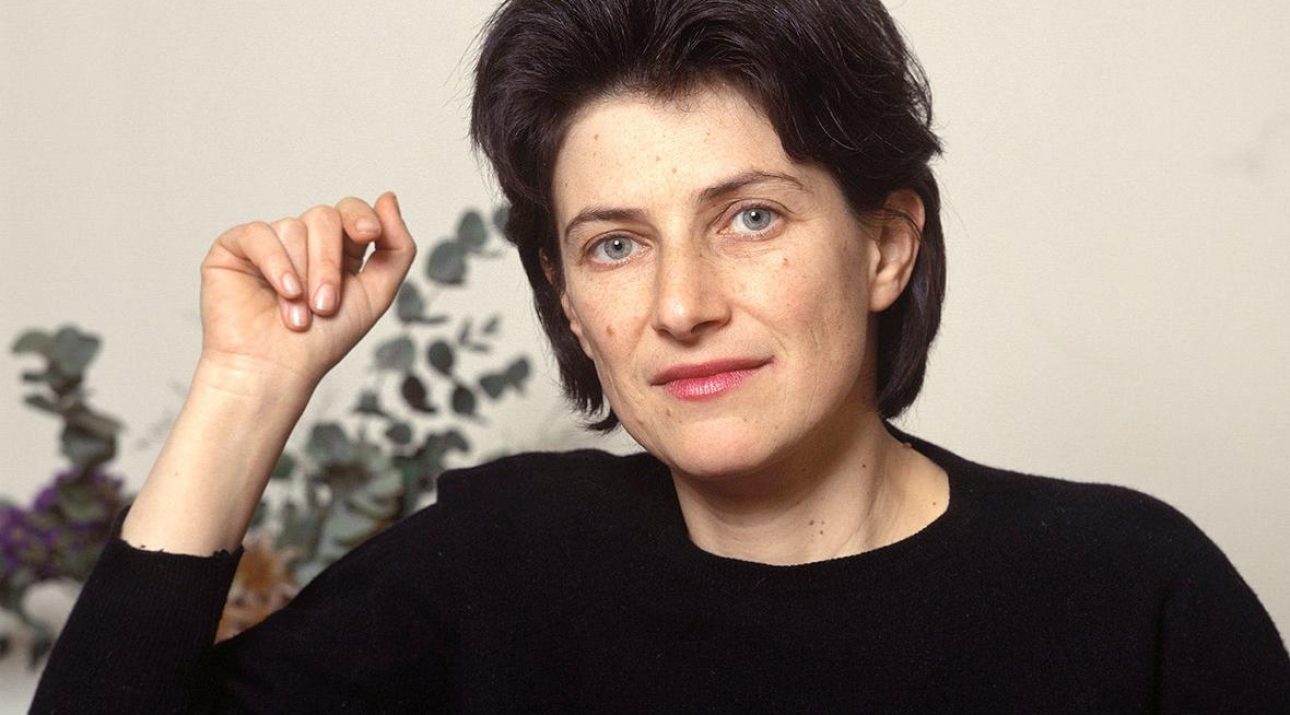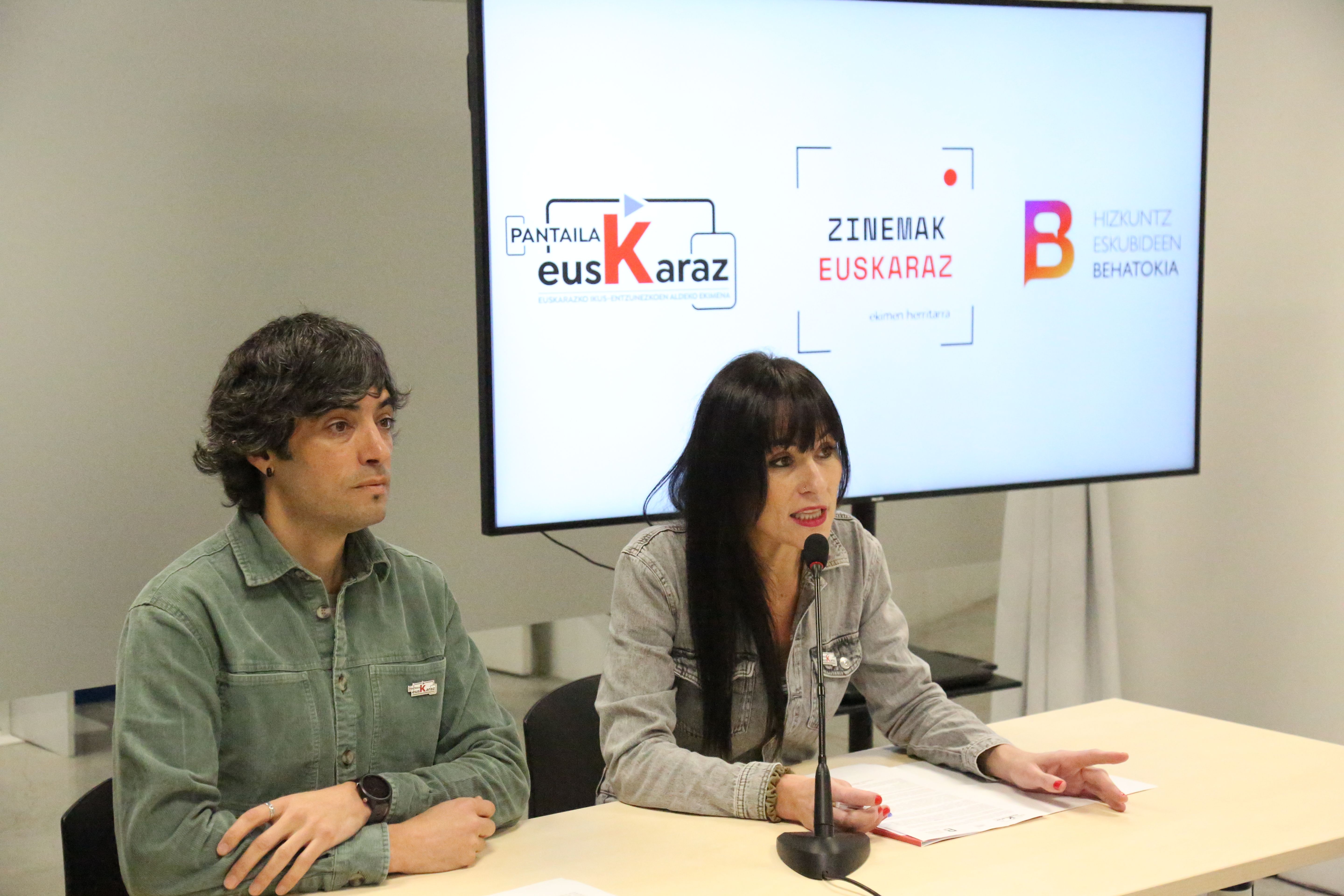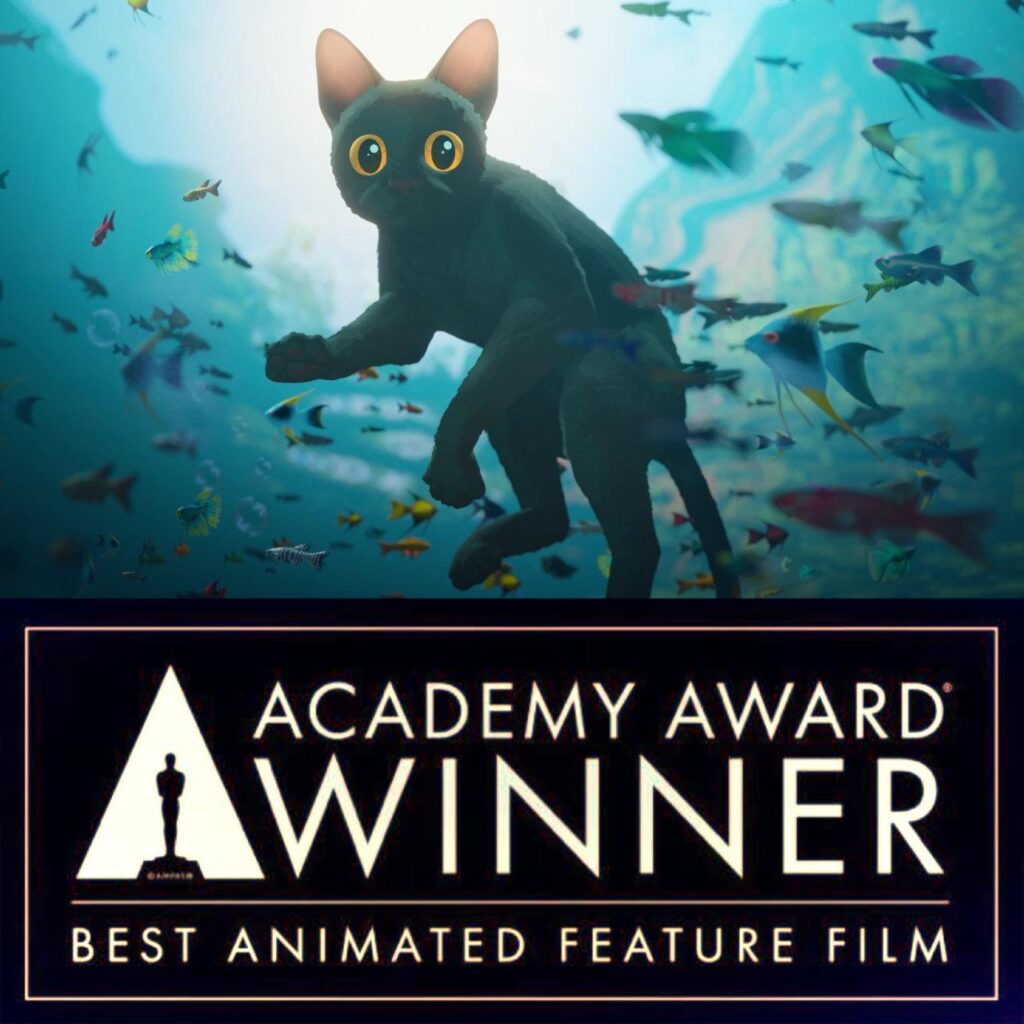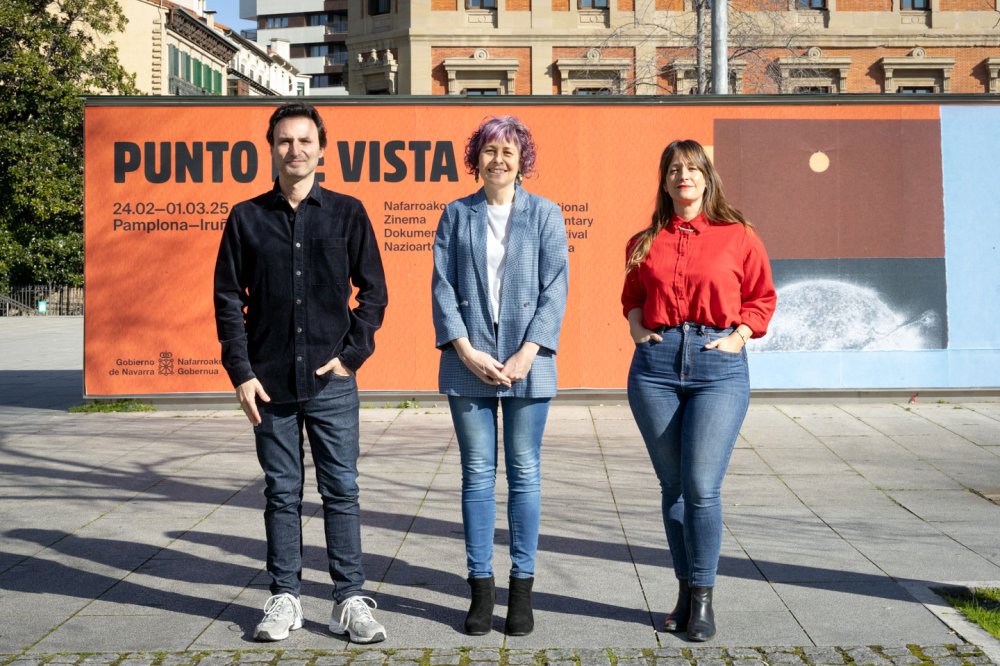“Violence attracts me, it has a meaning”
- He jumped without a net and it went well: The actor Najwa Nimri became his muse and achieved success with a film full of violent images and short shots. Loved and hated by critics, he doesn’t care much and continues to explore with every movie.
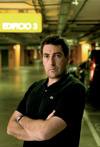
Love, sex and violence – that’s the driving force behind many of your films. Are they the engine of life?
It is for me, especially because they are very dynamic and I have always been interested in dynamics. In fact, cinema is a very plastic thing, and unlike literature, where one imagines characters and worlds, I believe that to stimulate this imagination in cinema one must represent sensations, graphic sensations, and they do not have to be linked intellectually as precisely as in literature. The language of cinema is very emotional, less cerebral, so yes, sex, violence, action... are important.
And how important is the story to be told in the face of this plasticity?
The story is always basic, but what is the story in the cinema? If literature is pure – and I’m not saying it in a bad way – the language is different, more theatrical, and maybe cinema is still partly linked to literature and theatre, to a literary understanding of things, but the language of cinema seems to me for much more, or at least I like to explore the emotional side more, not through the concept that develops in the story and in the mind of the viewer, but through the emotions generated by the images you see. You can reach certain emotions and sensations only through the visual and auditory medium; in a more literary way you do not reach them, but other emotions. Cinema is only a part of the audiovisual language – including TV, mobile phones, video games, the Internet... but there is still a lot to explore and I don’t think that linked to the literary language will reach the top.
Because of these image impacts, you were once compared to Quentin Tarantino. After that – for the film Ausentes – also M. Also with director Night Shyamalan. Do you identify with someone?
No, they are unique in their field and I am mainly an explorer; I change genres a lot and in that sense I don’t have any complexes.
Anyway, I mentioned Tarantino because of that impact of the images that both of you are using, the use of violence...
Tarantino makes comedies at the base and I don't. He uses violence as a comedy and is therefore completely different. However, it is true that I am also attracted to violence, I do not know very well why, because it is impactful, the plasma of violence is very graphic, because it is very dynamic, because in itself it preserves a meaning... and I believe that violence itself is a kind of language in the society in which we live, even if it can be taken in a bad way.
Do you select extreme characters, led to extreme situations, looking for this dynamism?
That’s what I’ve done so far, because I wasn’t so interested in the lives of ordinary people, not even mine, but in the characters who have to deal with situations that overcome them. It’s more dynamic, and you can take things much further and enter into the realm of fiction, thus fully immersing yourself in the world of feelings and emotions.
Hence the obsession with these unstructured families and their drug-addicted, alcoholic, unbalanced mothers?
I take the family as a reflection or metaphor of society and society is unstructured. Relationships between family members are relationships of support, cannibalism, exclusion... that can be found in society.
Industrial zones, dry asphalt and the environment in general are very significant in your works, to the point of conditioning the fate of the characters. What does your surroundings convey to you?
The environment is always very important because it is also very important in life. You live a different life depending on where you live. I’ve been very fond of comics since I was a child, and in comics the environment itself is another character with a leading role – not so much in literature. In the cinema I also like to create one more character with the environment and depending on that environment my films are very different.
Speaking of the environment, it would not have been tender for Warriors to roll on the border between Kosovo and Montenegro.
The Warriors movie was amazing because it allowed us to roll in an area where the conflict had just occurred and everything was very fresh, very real. I’m very happy with the film, with the story, but all the background adventure we had to do it, getting permits with the Albanian-Cosovoy and the guerrillas, etc., gave us the material to make the film more exciting. Those of us who live in a relatively protected West see wars far away, but about 35-40% of the world always lives in war, even though we are not aware of it. You realize that the scale of the values you have changes completely there. When we were in Kosovo, the people who caught our attention, who were having a hard time, who suffered so much, always had optimistic thoughts. In addition to geopolitics, this would also have been key to achieving independence: they have done so in a very optimistic way, they have been able to look forward without looking backwards. Each film is a new adventure and much bigger in the case of Guerreros.
It would not have been technically easy to make such a film.
I spoke to the technical director and I said: “You and I have to go to the bars in Kosovo and get in touch with the people of the guerrilla and cultural world. If they agree, we can move on, otherwise it will be impossible.” We became friends with the locals and worked with many locals as well. We were very well received – because we were Basques, among other things – although we had a scare or something.
The music you use is also important in setting the pace of the film. Do you listen to music thinking about images?
I usually think about the images and some feeling to create the film. Sometimes the music helps me get to that feeling and sometimes it doesn’t, but I include the music after the film has rolled. I use it as a counterpoint or complement to the images, but I have never imagined a film from a music. It’s true that music is a huge source of inspiration, but I don’t work like that. And it’s also true that music plays a huge role in my films, it’s a basic element in making the film, 30-40% of the film.
You also worked as a writer. Usually your characters have strong, dry, direct conversations...
My job as a writer has cost me the most. In my first film, we had to roll half the script because we didn’t have money and since what I did was good, I kept working thinking that the script was the same. And it's not true, the script is very important. The dialogues depend on the characters, they are not always direct and dry, there are no rules for me, I keep researching, I am an explorer, above all.
In the end, the environment, the music, the script... Everything is a creative process and from different paths I seek only one goal: to imagine and transmit some sensations, some emotions that will raise questions to the viewer. And that it has a finish that everyone can enjoy, make it entertaining.
Let's get to the present. You were studying in Brooklyn and New York when you were young in the '90s, and now you're back in the U.S. with the project of directing a film. How did you find the United States and the Americans?
Americans have a very defined industry – with counter-industry at the heart of the industry – and some make commercial cinema, others more independent, but they have very clear what they do and for what, they know what they are doing. They are clear about the attitude that the film has to show and in Europe it works with more doubt, where they have more internalized that it is a manipulative medium. What impresses me the most is their ability to work. They know a lot about cinema, they carry it in their blood, somehow. There is a great tendency here to criticize American cinema, but the cinema there, like in other places, is made by people and in my opinion 80% of the most interesting films come from the United States or from its orbit.
You went to the United States for the remake of Ausentes, but in the end the project you have agreed there is different. What can you tell us?
The remake project is there, but I don’t want to direct it because rolling the same movie again is quite absurd. I’m working with the producer of director Sam Raimi (Spiderman) and I’ve been working on a script for two years, selecting actors and places, and making endless meetings, really endless! The idea is to roll between the end of this year and the beginning of the next. It will be a science fiction story that sends a very interesting message about American society: when they feel invaded, they will attack each other instead of uniting, because they will look for the enemy among themselves. It's scary and the story will happen in a snowstorm... but I can't give you any more information.
What are you afraid of?
Right now, if anything bad happens to my son, I want him to live longer than me.
Doesn't the desire for globalization in Hollywood scare you?
No, for what? Globalisation seems to me to be worrying as social inequalities can increase and become more widespread, but the generalisation of information and greater accessibility to things seems to me to be very good.
You are also immersed in some other project in Spain.
Yeah, we'll start rolling on July 28th. It is a story that has happened in reality, set in a similar Guantánamo for middle and upper class youth with problems. Five young people will be sent to one of these rural houses that exist in Europe, similar to the allegorical reformatories. This is a project commissioned by the TV channel Antena 3.
In such cases, is it necessary to seek a balance between commerciality and artistic creativity?
It’s the first time I’ve worked so directly for TV and it’s a challenge for me because TV has a much more direct language and the audiences are much bigger. It’s a hard story and I have to tell it in such a way that the message arrives, but at the same time it has to be able to be placed at 22:00 at night. It's a new world for me, but very interesting.
Hollywood will also look for commerciality...
Yeah, more than anywhere else. The search for balance is everyone’s choice. If you are making your own path you can follow that path and you do not need to reach a balance. Even if you’re working for someone, going or leaving is your decision, but it’s always good to find a balance so you can tell the things you want by reaching as many people as possible.
What do you want from a movie?
If it’s mine, make it better than the previous one, although it doesn’t always happen, haha, haha. If I go to the movies, I ask a film for a sack full of emotion. And also, if these emotions stay inside me, that is, if they are persistent, better. Don't just turn out to be fireworks, because that bores me. Sometimes I go to a cinema with 9 rooms, I pay a ticket, I go to the last room and I watch about 10 minutes of each movie, until someone engulfs me.
You started with a comedy. Would you go back to comedy?
Yeah, I'd love to do it, and I'm sure I will. I've been thinking about a comedy for a couple of years, but I still haven't found an idea that's strong enough to make a comedy. A good comedy is a very difficult genre.
But is it difficult to get rid of the label, as in the case of actors, for directors?
There are tags, but you are the author of it and you can even remove it the way you put the tag. Prepare other projects, make different films... and you will be stripped of the label.
Read in an interview: you have hobbies for hunting, women, wine, books and nightclubs. Would you add a new one to the list?
Right now, my biggest hobby is my son and my wife. I've loved the mountain and hunting forever but now it's got to be on top of the baby and I've forgotten a little bit. I haven’t been to the nightclub for a long time and I like wine instead, yes, I like a lot, ha, ha. I like to eat and drink well.
You have said that Basque cinema does not exist.
I said that because we were directors of the Basque Country, but there was no Basque cinema, because Chinese cinema is supposed to be the Chinese who talk about the Chinese; and there was no Basque cinema that talked about the Basques. When Euskalmedia was made, a producer was given a lot of money, instead of promoting what was done in the Basque Country, he dedicated himself to making films in South America and we had to go to Urbizu, Medem, Alex de la Iglesia, Bajo Ulloa, myself... Madrid because in the Basque Country we couldn’t produce. It is true that this is changing a lot, but I rooted my first films there and I did not receive a single grant from the Basque Government.
If you have a film that indirectly touches the Basque conflict (A ciegas) and others have also been made, but in my opinion most of them are quite artificial. Is it a particularly difficult subject to deal with?
I made a Buñuelian film, I didn’t want to be realistic. It’s something that has always attracted me. You have to guess from the point of view and when I have that clear I will try to make a film about terrorism, not before.
What kind of movie would it be? How do you see the Basque conflict?
I see the encistado. With Tregua, I thought I could get somewhere, but it looks like I can't. The situation is very tight, that's the word. It doesn’t go anywhere and it doesn’t even look like it’s going anywhere. But the future will tell. Things either end up making sense or they die on their own; it seems to me that the existing point of view is rather anachronistic.
No other land dokumentalaren zuzendari Hamdan Ballal kolono sionistek jipoitu zuten astelehenean bere herrian, beste hainbat palestinarrekin batera, eta Israelgo militarrek eraman zuten atxilo ondoren. Astarte goizean askatu dute.
Donostiako Tabakaleran, beste urte batez, hitza eta irudia elkar nahasi eta lotu dituzte Zinea eta literatura jardunaldietan. Aurten, Chantal Akerman zinegile belgikarraren obra izan dute aztergai; haren film bana hautatu eta aztertu dute Itxaro Bordak, Karmele Jaiok eta Danele... [+]
35 film aurkeztu dira lehiaketara eta zortzi aukeratu dituzte ikusgai egoteko Euskal Herriko 51 udalerritan. Euskarazko lanak egiten dituzten sortzaileak eta haiek ekoitzitako film laburrak ezagutaraztea da helburua. Taupa mugimenduak antolatzen du ekimena.
Pantailak Euskarazek eta Hizkuntz Eskubideen Behatokiak aurkeztu dituzte datu "kezkagarriak". Euskaraz eskaini diren estreinaldi kopurua ez dela %1,6ra iritsi ondorioztatu dute. Erakunde publikoei eskatu diete "herritar guztien hizkuntza eskubideak" zinemetan ere... [+]
Geroz eta ekoizpen gehiagok baliatzen dituzte teknologia berriak, izan plano orokor eta jendetsuak figurante bidez egitea aurrezteko, izan efektu bereziak are azkarrago egiteko. Azken urtean, dena den, Euskal Herriko zine-aretoak gehien bete dituztenetako bi pelikulek adimen... [+]
Otsailaren 24tik eta martxoaren 1era bitartean, astebetez 60 lan proiektatuko dituzte Punto de Vista zinema dokumentalaren jaialdian. Hamar film luze eta zazpi labur lehiatuko dira Sail Ofizialean; tartean mundu mailako lau estreinaldi eta Maddi Barber eta Marina Lameiro... [+]
A conference for architects has just been held in Madrid to discuss the crisis of the professional architect. They have distinguished the traditional and contemporary way of being an architect. What is traditional? From the epic architect who appears in The Brutalist, where... [+]












